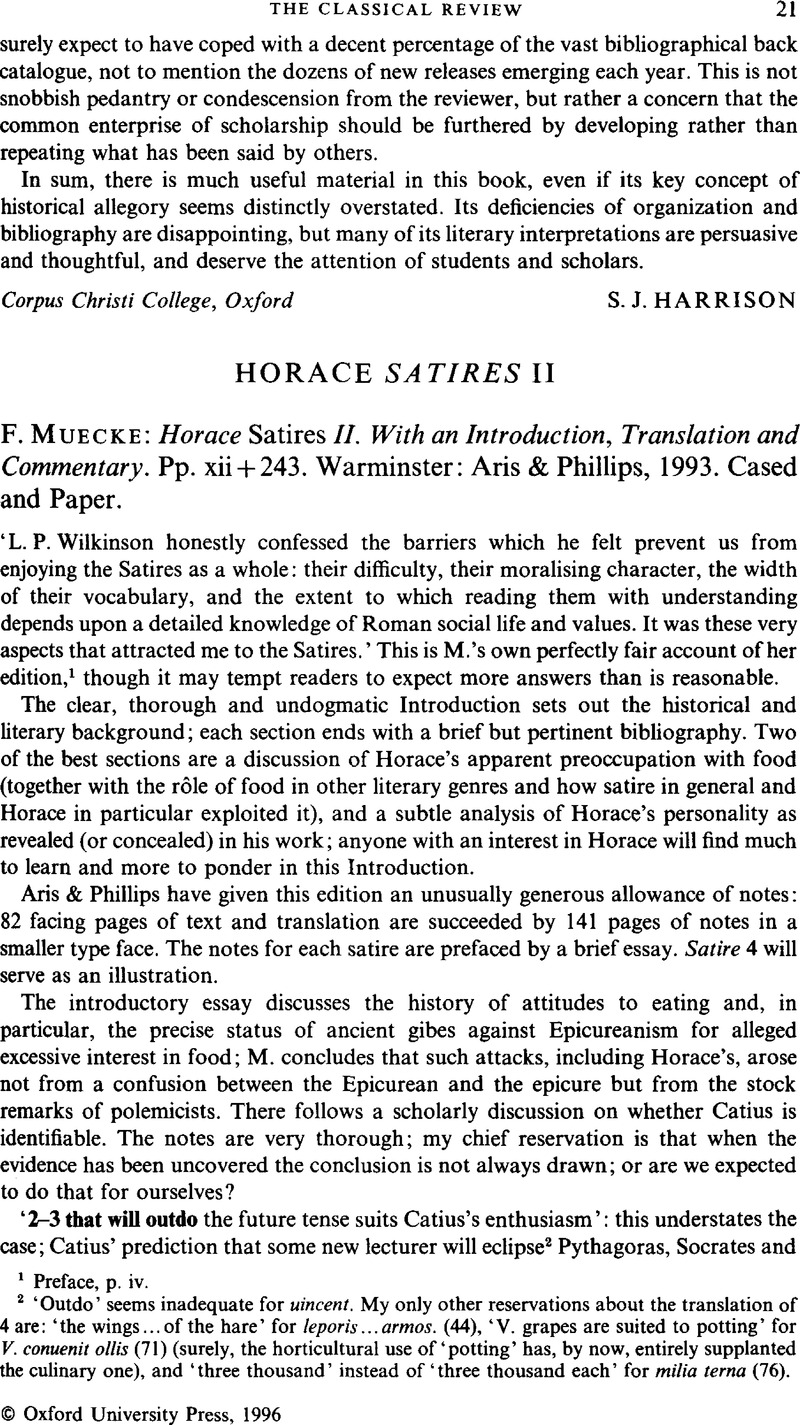No CrossRef data available.
Article contents
Horace Satires II - F. Muecke: Horace Satires II. With an Introduction, Translation and Commentary. Pp. xii+243. Warminster: Aris & Phillips, 1993. Cased and Paper.
Published online by Cambridge University Press: 16 February 2009
Abstract

- Type
- Reviews
- Information
- Copyright
- Copyright © The Classical Association 1996
References
page 21 note 1 Preface, p. iv.
page 21 note 2 ‘Outdo’ seems inadequate for uincent. My only other reservations about the translation of 4 are: ‘the wings…of the hare’ for leporis…armos. (44), ‘V. grapes are suited to potting’ for V. conuenit ollis (71) (surely, the horticultural use of ‘potting’ has, by now, entirely supplanted the culinary one), and ‘three thousand’ instead of ‘three thousand each’ for milia terna (76).
page 22 note 3 M.'s comment ‘With the first precept Catius simultaneously meets and disappoints our expectations’ is both true and misleading; true because we were expecting sublime philosophy and were given eggs instead; misleading because M.'s analysis ‘he draws on a controversy of natural science…to make a gastronomic point’ is a second and more subtle point appreciable only by those who have fully grasped the first.
page 22 note 4 The Satires of Horace, Cambridge (1966), 209–210Google Scholar.
page 22 note 5 There is a similar problem with lettuce at 58f.
page 22 note 6 The parenthesis should be placed after ‘Latin’ in the line above to avoid giving the false impression that Statius used the word metaphorically.
page 22 note 7 I know of no better discussion of these issues than Rudd's, pp. 207ff.




